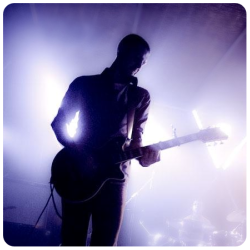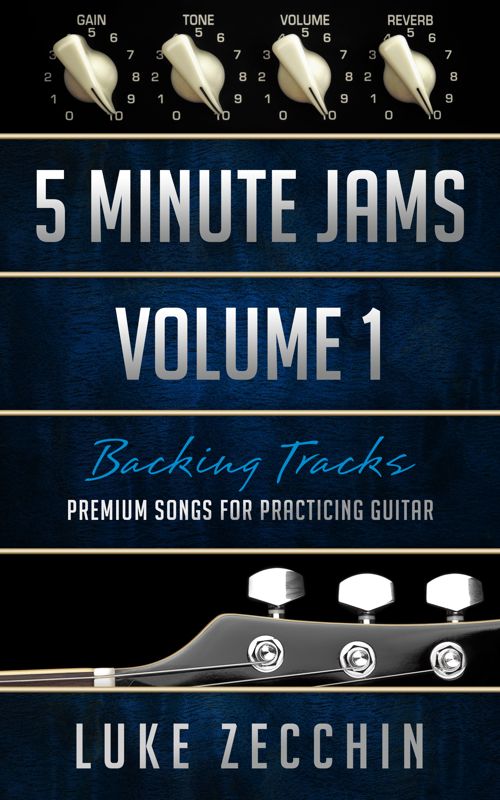Thinking about FocusWhen given the opportunity to play over a chord progression, the immediate temptation for many guitarists is to launch into an endless onslaught of scales and familiar licks. Although aimless noodling can be fun, constantly playing the same old things doesn’t provide much opportunity to grow or challenge ourselves creatively. While it may be difficult to practice without playing, it’s very easy to play without really practicing anything. The simple truth is that focused practice is efficient practice. This means being more intentional with your practice time. For example, when you sit down to play guitar, how often do you define the exact elements of your playing you’re choosing to work on? Think about it. When was the last time you asked yourself: What are my exact objectives for the time I’ve dedicated to improve my playing today? When we pick up the guitar, it’s a fair assumption for most of us the goal is simply to practice. But practice what? What does that actually mean? Does it mean we’re intending to work on our technique, our music theory, or our improvisation? Perhaps it means we want to improve our fretboard visualization, ear training, or songwriting skills? Most likely, it’s a general combination of a number of these things, with no clear overall agenda. Suppose we did actually predefine the focus of a practice session: improvisation, for example. What exact aspect of improvisation are we referring to? Do we want to work on our choice of melody and phrasing or our use of dynamics and emotion? Do we want to write some new melodic ideas or nail that difficult lick we can’t quite play yet? Are we focused on our fretboard navigation skills or mastering a specific technique, and if so, which one? While we could continue refining our focus even further, please don’t confuse the point of this brief exercise. In truth, all these elements are connected. The intention isn’t to overwhelm you with the many ways you could spend your practice time but to do precisely the opposite: to get you focused on the specifics of what you want to improve so your practice will be more effective. Many guitar players experience the feeling of stunted creativity, like they’re stuck playing the same old things and are unsure how to move forward. Identifying the particulars of what you want to improve sets a clear agenda for your practice time. A general desire to become a better guitar player is certainly positive, but it isn’t overly informative. Articulating the specific skills or techniques you’re looking to develop provides a clearer road map for achieving your goals. Tip: Often, to move forward in your playing, it’s helpful to think backward. Picture the overarching goal or skill set you’d like to achieve and then retrace the smaller steps required for getting there. While these steps will undoubtedly evolve as your knowledge increases, reflecting on this process will help provide clarity and direction for how you spend your practice time. Copyright © 2016 Luke Zecchin
Comments are closed.
|
Articles10 Chord Mastery Tips!
Guitar Chords 101 10 Memorization Tips Fretboard Memorization Fretboard Anatomy 101 Guitar Setup Basics 4 Keys to Great Playing! FREE Jam Tracks! 10 Tips for Better Solos Playing vs Practice 10 Scale Mastery Tips! Guitar Scales 101 3 Simple Guitar EQ Tips Rode NTR Mic Review iZotope RX - On Guitar Dealing with Latency Slate VCC | VTM Review GarageBand v Logic X 5 FREE Guitar Plugins Logic Pro X for Guitar Pedals vs Multi-Effects How to Roll Leads Stop Breaking Strings? When to Change Strings Using Neck Diagrams 5 Essential Tuning Tips 7 Beginner Mistakes |







